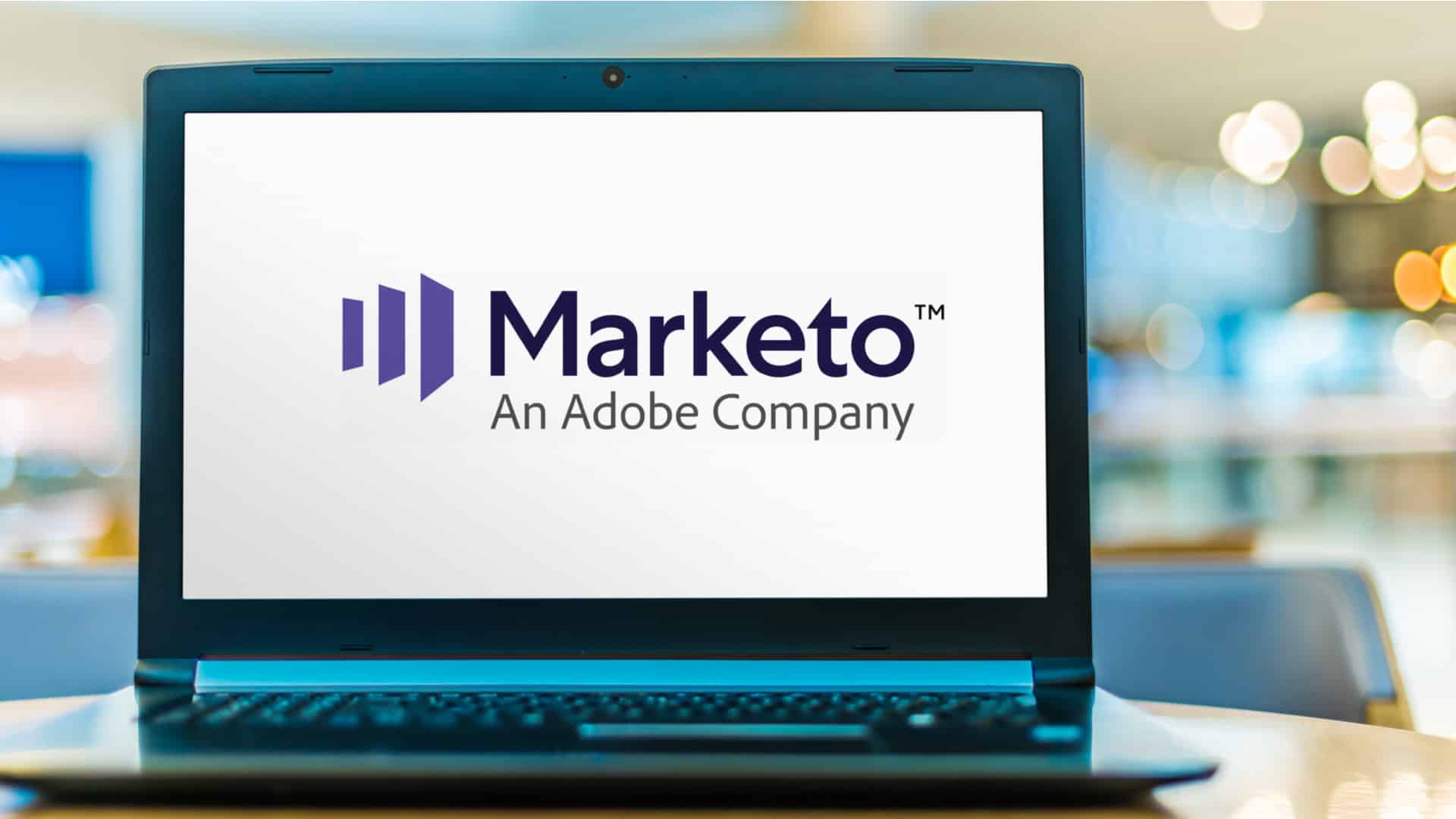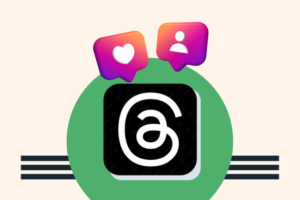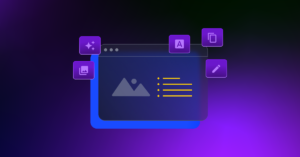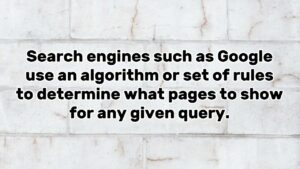
Marketo is perhaps one of the best-known marketing automation platforms for marketers. The company was founded in 2006, but was purchased in 2018 by software juggernaut Adobe for $4.7 billion. Since then it has been integrated into San Jose, California-based Abobe’s suite of marketing software.
Marketo, which Abobe renamed Adobe Marketo Engage, primarily serves SMB to enterprise-level B2B marketers and some B2C considered-purchase marketers in a variety of industries, including technology, business services, healthcare, financial services, education, manufacturing, and telco. Some of its biggest customers include CenturyLink, Charles Schwab, GE Panasonic, RingCentral and Roche.
This guide will walk you through some of the key capabilities of Marketo.

Explore marketing automation solutions from vendors like Marketo, HubSpot, Salesforce and more in the full MarTech Intelligence Report on marketing automation platforms.
Product overview
Cloud-based Marketo Engage features 10 major capabilities for:
- Marketing automation to create, automate, and measure campaigns across channels.
- Account insights and profiling to identify the right target accounts using data and AI.
- Email to engage customers with relevant conversations in minutes.
- Mobile to communicate with customers using mobile devices.
- Social integration to identify potential and current customers.
- Targeted, personalized display ads.
- Dynamic interactions with customers on a website.
- Marketing analytics to prove and improve business impact.
- Predictive content ensures best fit assets are presented.
- Marketo Sales Insight to drive account and prospect intelligence to sales.
- Marketo Sales Connect to coordinate sales and marketing.
Marketo Engage also natively performs basic data cleansing. For example, its data deduplication feature finds and merges duplicate users in the database. Users can also set up automated workflows for data normalization. More advanced data deduplication and data cleansing can be enabled through integrations with a number of LaunchPoint partners, including RingLead, ReachForce, StrikeIron, and CRMFusion.
Marketo also includes account-based marketing features as well. For example, Account Smart Lists leverage AI and predictive scoring to reveal the best fitting accounts for campaign activation. Personalized experiences are also automated across accounts through intelligent account nurturing. Account-based insights can also be delivered to sales offering full visibility across the buying team.
In fact, Marketo’s Sales Partnership feature shares customer intelligence across every touchpoint in the buyer journey. That includes:
- Multi-attribute lead scoring across sales and marketing touches.
- Real-time data capture and bi-directional data integration sync with CRM.
- Prioritized lead and account engagement scores.
Supported sales engagements and channels include email, phone, sales and marketing nurture campaigns, preloaded email templates, suggested email categories, cross-channel personalization.
Lastly, Marketo’s features are also compliant with the following data privacy frameworks and is ISO 27001 certified: SOC 2-Type 2, GDPR, CCPA, and HIPAA.
Lead management
Marketo Engage includes five essential capabilities: content personalization, cross-channel engagement, experience automation, sales partnership, marketing impact analytics.
Marketo also provides landing pages and progressive forms and users can develop and qualify potential buyers with personalized nurturing campaigns and scoring capabilities. Marketers can prioritize the best leads with quality and urgency ratings.
Marketo offers campaign cloning across programs, workflows, and assets and integrates with Salesforce, Microsoft Dynamics, SAP, and other CRM systems to increase lead management effectiveness.
Marketo Engage also touts AI-driven capabilities like Predictive Audiences that support look-alike models and predictive models to help marketers discover new, unique audiences.
Campaign channels
While email is traditionally central in any marketing automation platform, Marketo Engage claims to support the following marketing channels:
- Email.
- Mobile push notifications and in-app messages.
- Direct mail.
- Social media.
- Digital advertising.
- Websites.
- E-commerce sites.
- Webinar and conference services.
- Video/interactive applications.
- Tradeshows, seminars, and events.
Collaboration
Task management is included natively in Marketo Engage from within the application’s Command Center or from the Tasks section of the Live Feed. Tasks can also be managed from within CRM systems. The platform also offers flexible and customized access, users, roles, and permissions across the user base.
Workspaces can also be segmented or shared based on programs, databases and instances for segmented teams. Marketing and sales coordination is also supported via lead and account intelligence and engagement blueprints in the platform.
Analytics
Marketo Engage’s ROI reports include multi-touch attribution and aggregate impact of marketing on the revenue cycle over time, including conversion rates plus flow and velocity through the funnel. Executive dashboards also feature revenue cycle analytics identifying real-time metrics and trends.
Bizible by Marketo, an add-on platform by Adobe, offers complete attribution across every marketing
and sales touchpoint, a variety of attribution models, and connectors to paid media channels.
Performance Insights identifies programs and channels that deliver the highest marketing ROI and Marketo’s Success Path Analyzer monitors key performance metrics for each stage of the customer journey.
The company’s Revenue Modeler report defines customer journey stages and monitors how potential customers move through the funnel.
Advanced Journey Analytics reports feature a pivot-table UI for ad hoc reporting on channel and campaign performance, including attribution and ROI.
Lastly, Marketo’s Opportunity Influence Analyzer highlights cross-channel marketing activities that influence deals to understand each marketing touchpoint’s influence.
Integrations
True to its billing as one of the leading marketing automation platforms available to marketers, Marketo offers a very wide range of integrations with other major marketing technology platforms on the market. Overall, Marketo offers:
- Native integration with Microsoft Dynamics 365, Salesforce, and SAP C4C.
- Support for two-way synchronization.
- With CRM credentials, custom objects and fields can be synched automatically.
- Additions/deletions to CRM framework such as fields or objects are automatically updated in Marketo Engage.
- Turn-key integrations for Oracle NetSuite, SugarCRM, and Zoho.
- Partner ecosystem of data integrators and digital agencies includes Accenture Digital, Deloitte Digital, DigitasLBi,
Informatica, Mulesoft, Talend, and Software AG.
Partners can also be found through Adobe Exchange, Experience Cloud and additional integrations are available through Webhooks, SOAP, and REST APIs.
Pricing and support
Adobe does not share specific pricing ranges, but Marketo Engage pricing is based on the size of the marketing database, plus any additional infrastructure requested such as advanced security, high volume APIs, high volume email infrastructure, or advanced database features. An annual contract is required.
Adobe does offer three pre-built bundles for Core Email Marketing and Lead Management, Account-Based Marketing, and advanced multi-touch attribution. All of its solutions include a Marketing Data Environment, which integrates profiles and engagement history to help marketers build customer relationships by enabling personalized interactions.
Any Adobe product/module not packaged in the solution can also be purchased as an add-on.
According to Adobe, products/modules are typically priced on a single scaling factor, such as database size, number of marketing users, number of mobile activities, or number of website visitors.
All Marketo subscriptions include access to customer success managers and all customers receive 24/7 web portal support. Global phone support is also available with paid support options.
In addition to software, professional services packages are available for implementation and consulting services.
Premium-priced support services include access to named support professionals, accelerated service-level response, and sessions for proactive mentoring and business review.
Snapshot: Marketing automation
For today’s marketers, automation platforms are often the center of the marketing stack. They aren’t shiny new technologies, but rather dependable stalwarts that marketers can rely upon to help them stand out in a crowded inbox and on the web amidst a deluge of content.
HubSpot noted late last year that marketing email volume had increased by as much as 52% compared to pre-COVID levels. And, thankfully, response rates have also risen to between 10% and 20% over their benchmark.
To help marketers win the attention battle, marketing automation vendors have expanded from dependence on static email campaigns to offering dynamic content deployment for email, landing pages, mobile and social. They’ve also incorporated features that rely on machine learning and artificial intelligence for functions such as lead scoring, in addition to investing in the user interface and scalability.
The growing popularity of account-based marketing has also been a force influencing vendors’ roadmaps, as marketers seek to serve the buying group in a holistic manner — speaking to all of its members and their different priorities. And, ideally, these tools let marketers send buyer information through their tight integrations with CRMs, giving the sales team a leg up when it comes to closing the deal. Learn more here.




